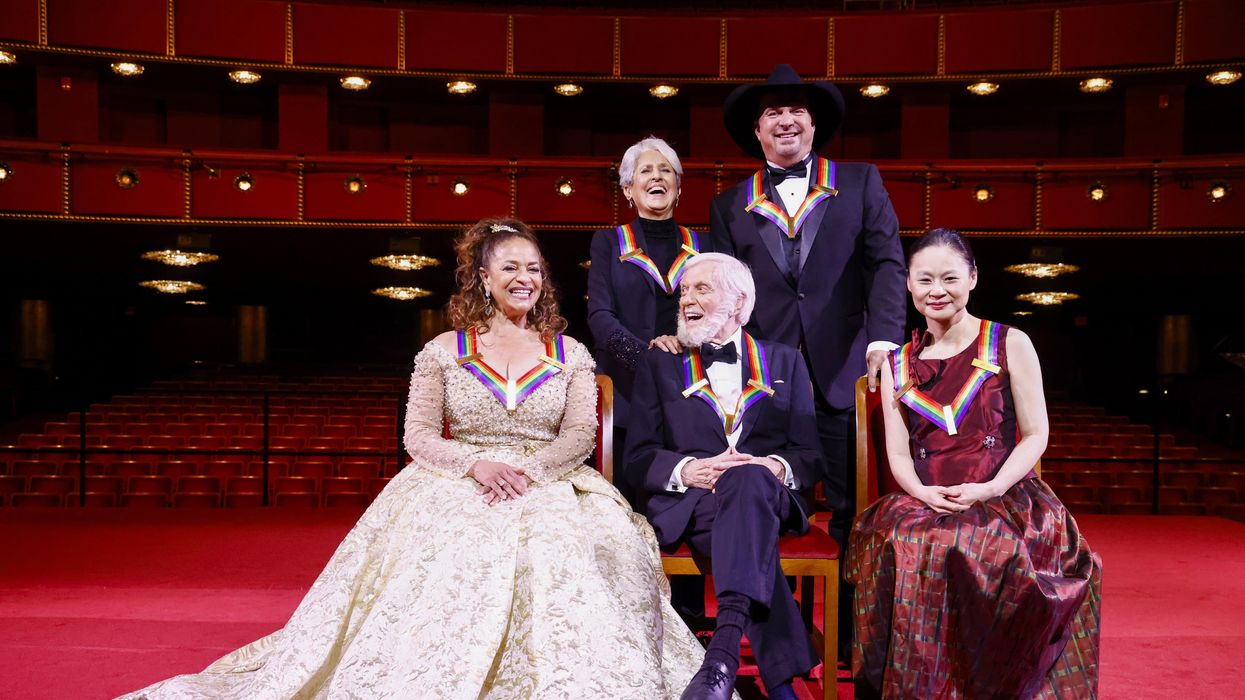As I watched the Kennedy Center Honors on Sunday night, I realized that this celebration of lifetime artistic achievement is much more than just another show business awards ceremony.
The Kennedy Center represents the cultural diversity of our country, and the language of the music and the dance presented over the course of the program illustrates how it often has been a catalyst for change.
There is a unique exchange between performers and their audience and the truly great artist raises the collective consciousness of those in attendance as they step into the future with the performer.
Joan Baez was one of the winners, and as a child of the '60s I remember her music well.
Baez was and still is a voice for the disenfranchised and the marginalized. The words of "We Shall Overcome" are as relevant today as they were then, and despite the passing of 50 years I do believe "deep in my heart — we shall overcome someday."
Those who spoke last night about the life and work of Baez reflected how counterculture her work was at the beginning and how all of a sudden in the 1960s they were the culture; a culture that lived the pluralistic dreams of our founders and the motto of our nation: E pluribus unum. Out of many, we are one.
Debbie Allen was another award winner. Her music and dance were deeply rooted in the Harlem Renaissance of her time, and her work also represents the unlimited potential that comes with creativity. Growing up in the segregated South, she was raised to be independent and free and saw herself as a citizen of the world.
Her words in many ways reflect not only her challenges in life but the challenges of our nation:
"You have to continue to believe in yourself, know your value and continue to work on honing your skills. I was rejected by everyone, but here I sit. So you have to stay in the game, you can't just fall apart. Hopefully those challenges will make you stronger. It did for me."
And then there was Midori, described by a presenter as a visionary artist, activist and educator who explores and builds connections between music and the human experience, a person who breaks with traditional boundaries to become one of the most outstanding violinists of our time.
One of the presenters last night spoke of how who Midori "stirs our souls with her music, but has changed our lives with her deeds."
There exists a unique understanding of possibilities of music not only for those who perform, but for those who listen. She recently said, "Artists have a singular responsibility through our work and deeds, to echo and mirror our society and serve its needs."
Midori understands so well the impossibility of perfection in both her music and the society that we live in, but also the common path of both:
"It should be recognized that pure perfection is unattainable. Therefore, the realization that one's irrevocable faults and deficiencies must be faced guides us toward the first step of learning. We must each accept any situation as it actually is, with dignity."
And she has fulfilled that responsibility as an artist. Midori is deeply committed to furthering humanitarian and educational goals. She has founded and manages several nonprofit organizations, including Midori & Friends, which provides music programs for New York City youth and communities, and Music Sharing, a Japan-based foundation that brings both western classical and Japanese music traditions into young lives by presenting programs in schools, institutions and hospitals. In recognition of such commitments, she serves as a United Nations messenger of peace.
The intersection of democracy and culture was reinforced last night. The musician seeks to inspire his or her audience, and the politician his or her constituency.
" Jazz music is the perfect metaphor for democracy," says famed trumpeter Wynton Marsalis. "The music of The Democracy! Suite may be instrumental, but it speaks for itself, urging us onto action—to get out of our seats and fight for the world we believe in."




















Trump & Hegseth gave Mark Kelly a huge 2028 gift